I need to come clean. A while ago I was worried that I’d read too slow and I let myself accumulate a backlog of books in order to make sure that you didn’t have a big gap between posts. Well, I think we all know that there was STILL a gap between posts and I gotta tell you, that backlog ain’t blogging itself.
So, I’d like to catch us up with some of the less memorable books in one large post. I’d like to point out that less memorable doesn’t mean BAD, just means I can cover what I want to say in a smaller blip. This means that we’re out of order but you should get better reviews of the newer stuff I’ve read. And honestly, if I don’t catch us up, I’m going to start to get lost.
So, let’s get dippin! (Ketchup, dip, get it? ah.. nevermind)
*****
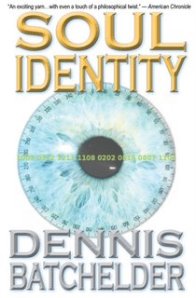 Most people believe that their souls live on past their bodies, but what if there were a way to identify and track your souls progress across several lifetimes? You’d be able to pass along things to your future ‘soul self’, building a bridge across the ages passing along wisdom and valuables. Scott Waverly is a security expert and has been hired to protect the company from a suspected insider attack, but along the way he’ll need to figure out what he believes.
Most people believe that their souls live on past their bodies, but what if there were a way to identify and track your souls progress across several lifetimes? You’d be able to pass along things to your future ‘soul self’, building a bridge across the ages passing along wisdom and valuables. Scott Waverly is a security expert and has been hired to protect the company from a suspected insider attack, but along the way he’ll need to figure out what he believes.
****
Not a bad book. Bought it for a penny on the Kindle and it was worth a bit more than that. Amazon is selling it in dead tree form for $10 and I like my price better. It’s not a bad book but not the best. This is one you could easily take on a plane and leave in the airport bathroom for someone else when you’re done. Not that I’ve ever done that, but if you found a mediocre book in the ladies in the Little Rock airport, you’re welcome.
Soul Identity by Dennis Batchelder, 268 pages (per Amazon’s product page)
*****
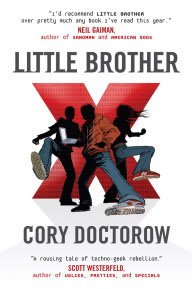 In the not too distant future, citizens are RFID’ed, computer networks are monitored and the illusion of privacy is just that – an illusion. Marcus, aka “w1n5t0n”, is just a kid who likes to push the boundaries – putting pebbles in his shoes to fool the programs that identify you by gait and cracking the browser security on his school issued laptop. When he and his friends are caught in the wrong place at the wrong time, Marcus gets a deep and dirty look at the inner workings of Homeland Security and the Government that is supposed to protect us all from harm.
In the not too distant future, citizens are RFID’ed, computer networks are monitored and the illusion of privacy is just that – an illusion. Marcus, aka “w1n5t0n”, is just a kid who likes to push the boundaries – putting pebbles in his shoes to fool the programs that identify you by gait and cracking the browser security on his school issued laptop. When he and his friends are caught in the wrong place at the wrong time, Marcus gets a deep and dirty look at the inner workings of Homeland Security and the Government that is supposed to protect us all from harm.
What follows is a perhaps too logical path to a 1984- like societal monitoring that Marcus and his friends begin to question and, in doing so, begin to recognise that the only way freedoms can be taken is to stand by and do nothing.
*****
Free. This book is free. I’ve linked you all to a place where Cory has released this on a creative commons license for everyone to read. So if you feel like it, go grab it and read it. My personal take? Honestly, I think it’s overdone. I get it, we live in a world where fear has caused the general populace to put up with borderline personal rights intrusions. And it’s a slippery slope. Most people don’t complain about taking our shoes off at the airport (really.. are you safer, really?) but now there are x-ray scanners that can see beneath your clothes. I believe that things like wiretapping under the guise of “safety” isn’t right, and so does Cory Doctorow, but this book practically beats you to death with it.
And I’m probably tired of him shilling it all over the place. Anyway, I suppose it’s worth reading, but I can’t say that I’m buying it for everyone I know.
Little Brother by Cory Doctorow, 384 pages (per Amazon’s product page)
*****
Scarface’s Burden – Joseph Devon. No fancy artwork. No page count (honestly it’s short. Like… oh.. short). But if you like Jonathan Coulton and you like the song “Skullcrusher Mountain” you will like this little story written by an oh-so-put-upon personal assistant to a mad scientist.
http://josephdevon.com/2007/11/29/short-story-scarfaces-burden/
*****
 Meet Jack. Office cube dweller working corporate security by day, technological tinkerer by night, Jack lives in a ever growing connected world. People are constantly plugged into the web and one of her best friends she’s never actually even met. But when she notices that someone has broken into her company’s computer system, she starts down an investigatory path that will lead her to the Reds – a group of people who don’t share her worldview. As she investigates, she discovers a whole new perspective and is forced to examine her own beliefs.
Meet Jack. Office cube dweller working corporate security by day, technological tinkerer by night, Jack lives in a ever growing connected world. People are constantly plugged into the web and one of her best friends she’s never actually even met. But when she notices that someone has broken into her company’s computer system, she starts down an investigatory path that will lead her to the Reds – a group of people who don’t share her worldview. As she investigates, she discovers a whole new perspective and is forced to examine her own beliefs.
*****
Good one. Another creative commons license (which means free, folks), I first tried to get into this one when it was on Podiobooks.com. Side note – Podiobooks.com is really cool. Free serial audiobooks delivered to you weekly (or as the author writes the next chapter) and it’s a great way to find some new authors. That’s how I found Scott Sigler (horror author) and a couple of others who are starting to hit mainstream. Check them out, it’s pretty cool if you like audiobooks.
ANYWAY, Wehm has created a world that I think is (unfortunately) a pretty logical evolution of our own. Personal interaction is much less important than the online world – in fact people have implants that let them be constantly on network. But you know if that’s that case, there’s always going to be a faction that thinks that’s not night (get offa my lawn, you smoochers!!) and this book paints that resistance pretty well. Plus, it’s got some nice little twists.
You can download it free on the link in the picture, it’s short so it’s worth reading if you have time.
Beautiful Red by M.Darusha Whem, 164 pages (per the download website)
*****
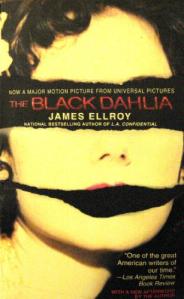 Elizabeth Short was found brutally murdered in 1947 in an abandoned field. After her death, she was known as the Black Dahlia. Her killer was never found. This novelization imagines the people who found her, the police who worked her case and what a strange and tangled web the Dahlia wove around the people she knew.
Elizabeth Short was found brutally murdered in 1947 in an abandoned field. After her death, she was known as the Black Dahlia. Her killer was never found. This novelization imagines the people who found her, the police who worked her case and what a strange and tangled web the Dahlia wove around the people she knew.
The story is seen through the eyes of Bucky Bleichert, an ex-boxer and current policeman, he finds himself drawn into the investigation. His obsession with the Dahlia and her story threaten all the important things in his life, and in the end he learns something about himself – and perhaps more than he wanted about some people that he cares about.
*****
Ellroy is the master of this sort of writing. A mix of truth and fiction, he’s woven a mesh of logic and almost unbelievable fantasy (not in that whole fairies and wizards way) into a story that feels like it could have happened that way. Ellroy also wrote “LA Confidential” (which is somewhere in the “read me” stack) and both The Black Dahlia and LA Confidential have been made into really good movies. I don’t know what that really says other than you can have a themed movie night if you read both of his books. Or maybe it means that he writes compelling stories… and that I’d agree with.
(If you get the book with the afterward by the author, read it. It’s worth it for an interesting insight into Ellroys relationship with the Dahlia… and it’s not what you think!)
The Black Dahlia by James Ellroy, 337 pages
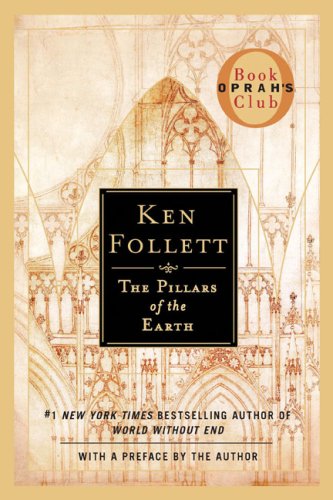
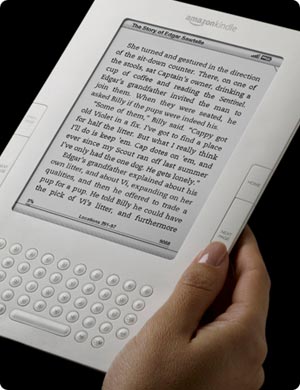 Yep, I bought a Kindle. Okay, how many of you are really surprised? I mean, I’m a techie dork and I like to read and it was only a matter of time, right?
Yep, I bought a Kindle. Okay, how many of you are really surprised? I mean, I’m a techie dork and I like to read and it was only a matter of time, right?